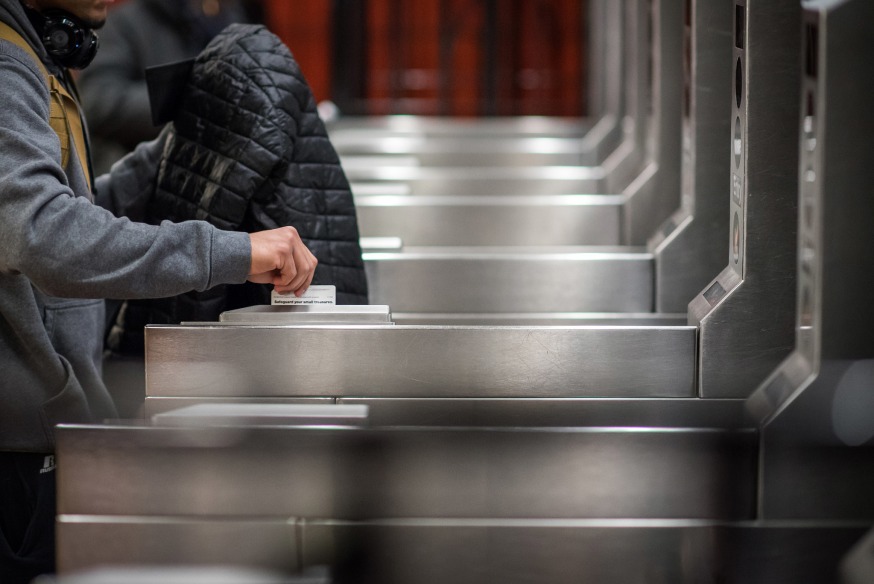
Mayor Eric Adams announced Monday that the city’s Fair Fares program will be funded for years to come (Ed Reed/Mayoral Photography Office)
Feb. 15, 2022 By Allie Griffin
The city program that offers half-priced MetroCards to low-income New Yorkers is going to be made permanent, Mayor Eric Adams announced Monday.
Fair Fares will be funded for years to come following an agreement reached by Adams and Council Speaker Adrienne Adams. The pair agreed that funds would be put aside each year for the program and that they would baseline $75 million in the next budget.
“The path to an equitable recovery runs through our public transit system,” Mayor Adams said in a statement. “Since its inception, Fair Fares has proven to be a transformative program for so many New Yorkers struggling to get by, and we are proud to announce this investment in its future to help even more people going forward.”
The program, first launched in January 2019, offers a 50 percent discount on subway and bus fares to straphangers with incomes at or below the federal poverty level — $13,590 for one person and $27,750 for a family of four. More than 260,000 New Yorkers have enrolled in the program, according to the city’s most recent data.
The mayor has also allocated an extra $15.5 million to Fair Fares this year, bringing the total investment up to $68.5 million for the fiscal year ending June 30, 2022. The program funding will increase to $75 million in FY 2023 and in future fiscal years.
The announcement marks the first time the city has guaranteed annual funding for the program. Previously, Fair Fares was funded on a year-by-year basis through budget negotiations between the City Council and the mayor’s office.
“I thank Mayor Adams for taking this great first step to baseline Fair Fares, now making it a permanent part of the budget for the first time,” Speaker Adams said in a statement. “Affordable access to our public transit system is essential to our recovery from the pandemic, and to achieving equity at all times.”
The Adams administration noted that it can adjust the funding amount in the future based on ridership and program demand levels.
Transit advocates applauded the mayor and speaker’s decision, citing the program’s critical role in helping countless New Yorkers get around the city.
“Fair Fares is an essential program in the lives of hundreds of thousands of New Yorkers and crucial to the city’s and MTA’s pandemic recovery plans,” said Betsy Plum, executive director of Riders Alliance. “By baselining Fair Fares in his preliminary budget, Mayor Eric Adams is putting it on a firm foundation for future growth.”
2 Comments

NYC/MTA excluded disabled individuals from receiving a discount on fares yet offer it for low income or no income individuals? The LEFT has lost it’s way and this is part of a series of issues I have with my former party. Please get back on track.
“[Transit officials] categorically exclude eligible people with disabilities from Defendants’ Fare Discount Program,” the lawsuit states. “Defendants’ fare system violates the anti-discrimination requirements of the New York City Human Rights Law.”
NYC Dems are running out of things to give away for “free” or discount to the low income individuals. What’s next?